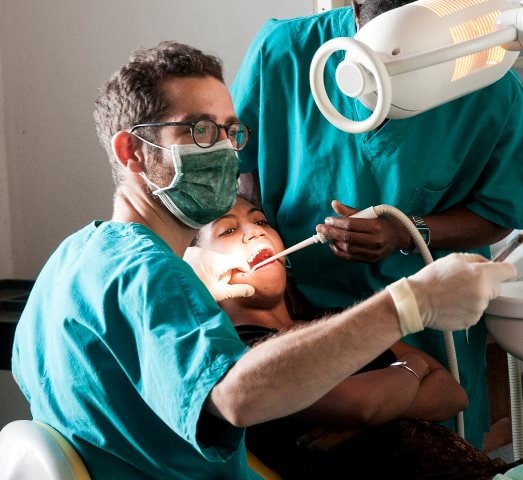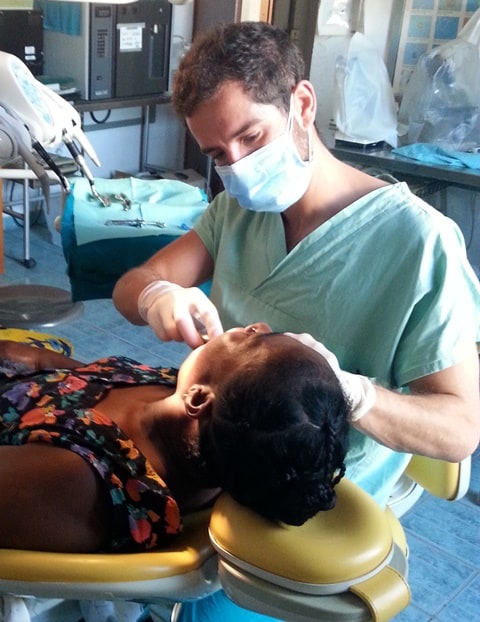
Philipp Scaglia studies in the Faculty of Odontology at Malmö University, Sweden, already internationally known for its system of education focused on problem-based learning and finding practical solutions. Philipp had an idea for a practical solution which went a very long way….in fact, all the way to Madagascar.
A journey to discover the state of dental health in Madagascar
Philipp Scaglia: Malmö University offered a scholarship for a bachelor thesis on research with a development dimension. While researching ideas, I came across the Italian NGO Amici di Ampasilava, which supports a remote volunteer hospital located in rural southern Madagascar.
When it comes to dental health in Madagascar, the whole country has only two dentists per 100,000 people. The majority of these are located in the major cities. The infrastructure, on which good medical care depends, including roads and transport facilities, hardly exists. Access to proper oral health care in the rural areas of Madagascar is therefore almost zero.
Vezo hospital was built in 2008 in Andavadoaka, a small village located on the southwest coast of Madagascar. It is financed exclusively by donations and staffed exclusively by volunteers. It has become an important centre for the surrounding villages not served by proper medical and dental care.
All year round, volunteers including surgeons, dentists and nurses visit the hospital and provide assistance. My project was to use surveys to understand the dental health care needs and oral care knowledge, attitude and practices of the patients.
During the two months of the project, my team collected information on local oral care practices using a questionnaire, including questions on knowledge, attitude and tooth brushing habits.
In addition, over 300 patients were examined, to establish the incidence of caries, missing teeth and the presence of calculus. We helped with some of the dental work as well, including extractions, restoration and scaling.

We also gave oral health education at the local school to three 6th grade classes – a total of 120 students. This was probably the first information on oral care that most of the children had ever received in their lives. Colgate supported us with toothpaste and toothbrushes, which we distributed to the children and patients at the hospital.
So what did we learn and what were the conclusions of the survey? I am still writing up the results but can confirm that the general dental health of the local population is severely compromised. We also found that brushing frequency among schoolchildren and hospital patients was unsatisfactory. More than half the schoolchildren were not aware that sweets and sugary drinks cause cavities.
Almost every patient was suffering from untreated cavities, as well as periodontal disease and fluorosis (potentially due to naturally occurring fluoride in the water).

The problem of dental health in Madagascar and its rural areas is not likely to be solved just by delivering dental care. Sustained preventive care, accessible information and improved oral care habits are also needed. A specially designed prevention programme and oral health education for schoolchildren will have a positive effect on the general oral health of the younger population. This will also involve educating local school teachers to give lessons on oral disease prevention. In this way more people will understand the importance and relevance of good oral habits.





You must be logged in to post a comment.